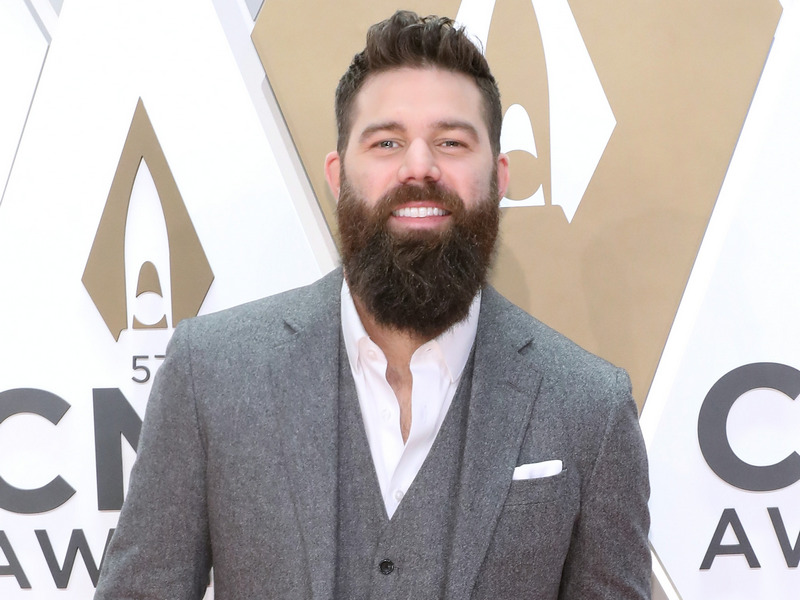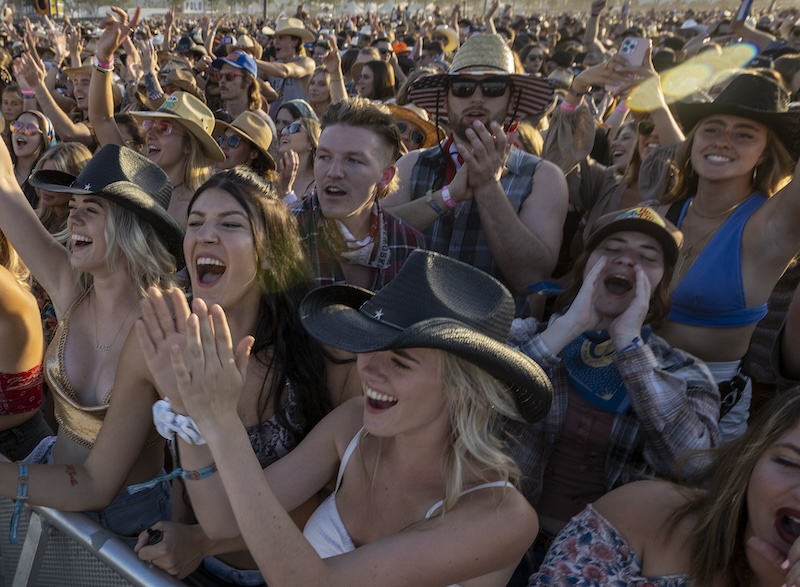Rick Barnes Transcript
On receiving National Coach of the Year honors from the United States Basketball Writers Association:
“I think that when coaches get awards that it goes directly back to their players and their staff, because we all know that it’s a team effort and we are in it together. I know what Henry Iba did for the game of basketball. I had a chance to really get to know Eddie Sutton, who obviously played for Mr. Iba, I heard so many wonderful stories about him. It’s truly an honor, a personal honor, but it wouldn’t have happened without my other coaches. I think I have the best coaching staff in the country. And obviously what the players do, that’s what it comes down to for the success we have had.”

On giving up leads against Colgate and Iowa:
“I think if you go back to the Iowa game, the way we got the lead is the same way we lost it. Turning the ball over, letting them get out and get easy baskets. Early in the game, I felt like our defense was great, but we had some just uncharacteristic plays where we just gave them the ball, and they are a well-coached team. They have been in it, and when we got back on our heels, the foul trouble hurt us. Grant picking up his second foul right there at the end of the first half, we were really trying to get him out of the game at that point, but we couldn’t. We had already used our timeout, so we couldn’t get the clock stopped. You can’t turn the ball over like that, and not to take anything away from them because they had to make the plays then momentum changed and now we are scrambling to try to score and gets some things done. The neat part about it was the communication our team continued to have, and once we got into overtime, they knew they had to go play. Our defense got us the lead, we made shots obviously. They were playing at a certain speed, and we took a few ill-advised shots where we could have really stretched out the lead. Turnovers and shot selection allowed them to get back in the game so you get the lead the way we did. Our offense has to keep it and our offense wasn’t very good the start of the second half.”
On going to the Sweet Sixteen so many times before and whether or not it makes it sweeter to be back:
“I don’t think you take any of it for granted. We know now, we saw it, that Colgate is a good basketball team. They made shots we that we couldn’t guard any better. You don’t take any of it for granted. Its longer timeouts, the game and halftimes are longer. The fact is you don’t take any of this for granted. You don’t. It’s hard to get there. It’s hard to advance, so when you do get there you want to take advantage of it.”
On the Purdue game last season possibly being a turning point for his team:
“It was a big game. That was one where we knew we were going to be in that tournament early. You go back to the year before that and we had been in some games like the Carolina game and the Wisconsin games in Maui where we were there, but we couldn’t get over the top. We knew at some point in time, we would have to get in the mindset where we could win one of those games. The Purdue game was a great game, so I don’t think that it was any question that it was around that time and in that tournament in general was when our guys thought that we can do this and we can play with these teams because of the respect you have for a program like Purdue.”
On the scouting report for Purdue:
“I think they are a little more perimeter orientated than they were a year ago. They are still going to have their inside game. He has been phenomenal. When you watch him play and there have been teams that try to guard him and he is one of those guys who gets it going. You can’t take anything away from him. Matt has done a terrific job. I think they were co-champions of the Big 10 and we know how good that league is. It’s going to be the same thing. You’re there and you’re going to have to work as hard as you can. Take care of the ball each possession. You’re going to have to defend, because you have a guy that can go for 40 or 50 points on you and we have to put a lot of pressure on him.”
On Lamonte’s defense and him rising to the occasion:
“He is arguably the most competitive person on our team. I’ve said it before he even started doing it that he could be one of the best defensive players in the country. He really enjoys it and he knows that he can do it. He had a great feel yesterday. He and Admiral were talking during timeouts. I don’t think people realize how hard it is to get a team to talk and communicate the way that you want them to. This team has got to that point. They both said that we have to keep Kyle in this game. I think the reason they felt like that was because we had to really extend our defense and we didn’t want to give up the three-point shot. They knew that we needed someone back there to try to protect the rim. Lamonte was so locked in yesterday, he was talking about what he had to do and what we had to do. It’s great at looking at how much these guys have grown with that. I thought it was pretty neat to hear him talk. During one of the timeouts, I heard Admiral say that we have to get Grant the ball, no matter what, because this time of the year you’re not going to get your first or second option so you’re going to have to work through a possession to do that. When a team is locked in like that, you admire it and appreciate it.”
On the Tennessee basketball program not being to the Sweet Sixteen that often and what he saw in the program coming here that let him know he could bring the program to this stage again:
“To be honest with you, I don’t think that I had a vision or anything. I just thought that we were going to go to work and see what we can do. I always have felt like you have to live one day at a time. You have to get your players to buy into a work ethic. There is no magic dust that you can sprinkle on anything. It’s about getting the guys that you really want to coach and getting them to believe in each other and what we are trying to do and to buy into it. I do know, our first year here, we were getting ready to play Tennessee State, I think, and a bowl game got moved around. Rob Lanier tapped me on my knee and said, “Coach, this is what makes this place so special.” Rob had been at Florida and we had 16,000 people in the stands. When you go back four years ago, all we had to hang our hat on was how hard we could play every night. I realized that our fan base and the Vol family was going to support you if you were willing to go out and play as hard as you possibly can play. That’s all we could do. I think they have enjoyed watching this group of guys grow up together. Admiral, Kyle, Lamonte, Brad and Lucas have sat through a 19-loss season and a 15 or 16-loss season. It has been neat watching them get to this point.”
On the SEC having the second most teams in the Sweet Sixteen:
“I’ve thought all year that I don’t know if there is a better league. I think that our league is right there with the best of them. I think that everything that we have went through this year has helped us get ready for this tournament. You like to think all that, but sometimes you get there and things don’t go well. I’m impressed in how far the league has come from four years ago. I’ve said it before that in a bad year, we should get six or seven teams in the tournament and in a good year, we can get eight or nine. I’m glad to see us get them and to go in and do something. It helps us going forward next year, once we get through this year and start talking about next year, people are going to expect good things. When you have high expectations, good things normally happen.”
On how coaches evaluate whether a guy can take hard coaching during the recruiting process:
“I think that one, you talk about it. You have to be very transparent through the recruiting process. Our coaches spend more time than most people think in getting to know players. You also realize that they don’t exactly understand what it takes to play at the very highest level. The fact is, you have to know that their attitude is there. You can really get a feel for it. You tell them it is going to be harder than anything that they have ever done. They are coming to a level where everyone on the team was the best player on their high school basketball team or they are the best player coming from wherever they are coming from. You let them know that it’s going to be hard, but it’s an everyday process. We are going to work with you and stay with you and we are going to hope that if you do your part we will do our part and it is going to work out.”
On Admiral taking himself out:
“I really respect Admiral and admire him for that because he had four fouls and knew that once he went right back in the game, they were going to try to post him up and go at him. He was the one that said, ‘Kyle’s got to do that.’ At that point in time and the matchup, he was aware of it and he knew it. He was as adamant as anyone I’ve ever seen about it. ‘Kyle’s got to stay in the game, he’s the guy that’s got to stay in there.’ And you do admire a player that’s willing to do that. He stayed engaged, and that’s what you want to see.”
On the matchup against Carsen Edwards:
“It’ll be Lamonte Turner, Jordan Bone, Jordan Bowden, Yves Pons, those guys because he’s so much involved. You hope that officiating is good, because you’ve seen how Lamonte is going get after it and Carsen is going to get after it. It’ll be more than just Lamonte, he’ll be the first matchup to start with. You have to have other guys ready to go too.”
On the coach of the year award:
“I don’t know if it’s really soaked in yet. I was kind of surprised when I heard that. I think it’s just the direct result of our program and team. I think that sometimes head coaches their words are there, but I can’t tell you how much Rob Lanier, Michael Schwartz, Desmond Oliver and Bryan Lentz, those guys are important to our program. Because I’m the head coach it comes up, but the fact is, I cannot say I can feel good about that award without those guys, because I know how much they do to help prepare this program and these players. I look at those individual awards just like I do with Grant Williams being player of the year; I think those are team awards, because Grant can’t get done what he needs to get done if other guys don’t do their job. To have this individual award, they really are team awards. You never know how many more years you’re going to coach, or do this, or do that, even though I don’t see myself not coaching. It’s a great honor, it really is, but I think it’s an honor for all of us.”
On letting some of the leads slip away:
“You have a tendency when things are going well for 20 minutes. I know you people think it’s crazy, but you know, if we can build a 25-point lead in the half, they can too. They wouldn’t be where they were, that was a good team, they can shoot the ball. When you get a lead, you can’t be sloppy with the ball, you can’t just hand somebody the ball, because momentum can change with a 3-point shot. When you just hand them the ball and they go down and score points just like that, a 25-point lead can go to a 15-point lead in no time. We know, we can come back in 2 minutes from a 9-point lead. Momentum is a lot of it, but I do think you’re still building young people, but you’d like to believe that they understand that we’ve got to go back out. Like I said to them, ‘We’ll know if were ready to play the first four minutes if we’re coming out defensively and getting after it like we started that game,’ and we weren’t quite the same. Then we started turning the ball over, then the foul trouble came. It’s a tough position to be in as a coach, because you’re wondering what your players are thinking and what their mindset is and if they think the game is over. They should know by now, it’s never over until it’s over. You can come out with a 25-point lead, get down to 15 within the first 4 minutes. A 15-point lead is only good enough for you if you know how to keep it, and in the last game, we didn’t because of turnovers.”
On how much the game has changed since more guys have the freedom to shoot:
“They stress your defense. Carsen Edwards is one of them. When he comes across that court, you better be locked and loaded, because he can pull it. A lot of people play those numbers: threes as opposed to the mid-range game. When I went back and watched the Colgate game, they’re experimenting with a new rule in the NIT, but they were making NBA 3’s with hands in their faces. When you have a lead and a team’s coming back, they start playing with house money a little bit too. I’ve always believed a team that gets aggressive is probably going to win most of the time if you can maintain it. We got back on our heels, and the 3-point line is a game changer. You’ve got guys that can do it, and it’s a good way to play if you have guys that can shoot it at a high clip. That line is a great equalizer.”
On if he would like to see the 3-point line moved back and if having the shortest turnaround in the Sweet Sixteen is a factor moving forward:
“I am in favor of the rule. I’d like to see us have a more universal game where we play, from our standpoint, more of the international rules. I’m in favor of going back to that international lane line. I think anything we can do to continue to help our game. I think the more we can spread it out will make the game be officiated better. I think we need to think about all facets of what we’re doing here. I honestly think we like the quick turnaround better, because we had felt like we’d been waiting forever to play the other night. By the time we played Colgate the other night, it seemed like forever. You could tell by the week we had. I don’t think it’s a disadvantage, because right now you just have to do your prep and get ready. If you’re fortunate enough to win, you go Thursday/Saturday then it flips back the other way. Like I said, it seemed like a long time waiting to play Colgate.”
On the explanation from the official on Lamonte’s foul:
“They told me not to look at the monitor. We didn’t get one. I just saw it when I was watching the tape at the end of the game. They just called a foul.”
On the decision to not have Admiral play in OT:
“Because of where we were, we made up our mind that was how we were going to go with it, and that’s what we did. I’m not sure there was any other thing, at the time, that we felt like was the best group out there that we could play with.”
On the explanation from the officials on the double technical:
“That conversation, to me, was to call the first foul. I used Fulky as a prop, because I saw what happened, and I said, ‘this is what happened…that’s a foul.’ After seeing it, I didn’t think it should’ve been a double foul. I didn’t think anything should’ve happened. Call the first foul and get on down the road. There was no explanation.”
On how he avoids thinking about if the game doesn’t go how they want:
“There’s a lot of thought going through your mind, but what you’re trying to do is get your guys back on track as best as you can. You don’t want panic to set in, and I think the way that they respond to the look on my face and the assistant coaches. We’re in the ball game, we’ve got to stop doing the things that we were doing wrong. At some point, we have to stop turning the ball ove, and we’re going to have to make plays. We don’t want to match baskets right here, let’s win this game. When we got back and guarded, we just told Kyle, ‘you have to get on the high side a little bit there.’ Offensively, we weren’t doing anything. It was one shot and done in the first half if you think about it. We were breaking it loose, getting out, and we didn’t get any of that in the second half. Some of the turnovers we had were ridiculous, we just handed them the ball and they scored with it. That’s when you say, ‘just get a shot, just execute on offense.’ When you get a lead like that, offense keeps it. They converted, and I think when the game was over with, that was a pretty good stat sheet. I think that they ended up with more points off turnovers than we did. So, what we got in the first half, they got in the second half. Shot selection changes every game.”
UT Athletics




















